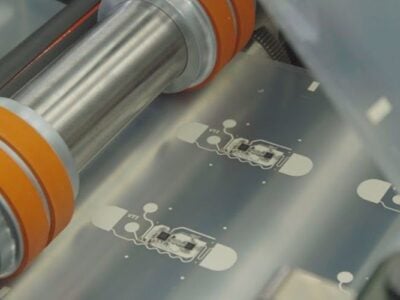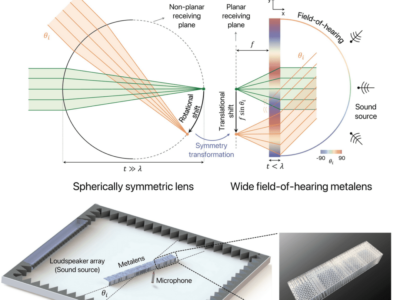
Battery technology using silicon nanofibers validated
TruSpin Nanomaterial Innovation (“TruSpin”), an advanced materials company engaged in battery technology, has announced the positive results of third-party tests evaluating the performance of the its prototype batteries. These tests, conducted by SpectraPower, validate the use of TruSpin’s silicon nanofibers to reliably multiply the energy capacity of Li-ion batteries.
“These results provide further confirmation of our material’s ability to reliably augment the energy capacity of Li-ion batteries. The advent of this technology challenges previous time horizons for the widespread adoption of electric vehicles and clean energy sources,” said Robert Agnew, CEO of TruSpin.
The company uses a proprietary process to mass produce exotic compositions of nanofibers, a new type of material with useful properties. Their prototype batteries incorporate silicon nanofibers within the negative side of the battery or anode.
For years, scientists have known that using silicon this way significantly increases the energy capacity of batteries, but they’re challenged by silicon’s tendency to expand as the battery charges. Silicon swells by 400 percent when the battery is charged, which diminishes the number of cycles the battery can endure. Because of this, companies like Tesla use a relatively small amount of silicon in their batteries. A handful of startups focused on silicon anode technology offer other types of nanomaterials to increase the silicon content. They have attracted massive investments, but the complexities of their production techniques render these solutions economically impractical.
The ability to increase the silicon content of a Li-Ion battery without degradation in performance due to swelling when charging would enable battery manufacturers to significantly increase battery capacity. TruSpin used a high level of silicon in the anode in their prototype batteries and through data analysis conclude that energy densities over 400 Wh/kg are possible. The best standard Li-Ion batteries today achieve around 224 Wh/kg. Further, silicon enables fast charge rates asa it can withstand higher current without degrading.
TruSpin is differentiated by its platform manufacturing process for affordably mass-producing nanofibers. While the approaches of other companies in the silicon anode segment involve engineering intricate silicon particles on the nano-scale, TruSpin’s production technique imparts the desired features to be innately embodied by the nanofibers. This enables the industrial-scale fabrication of anodes containing silicon nanofibers as the primary constituent.
The prototype results place the company in a small cohort of startups, some of whom with valuations exceeding $3B, all vying for leadership in a segment of technological development that will ultimately enable widespread electrification.
TruSpin summarizes test results in a report provided here.
Further reading
Power supply reference design cuts costs
Researchers discover materials capable of self-propulsion
Bourns acquires magnetics company Kaschke Components
Startup closes funding for programmable solid-state power system
 If you enjoyed this article, you will like the following ones: don't miss them by subscribing to :
eeNews on Google News
If you enjoyed this article, you will like the following ones: don't miss them by subscribing to :
eeNews on Google News




